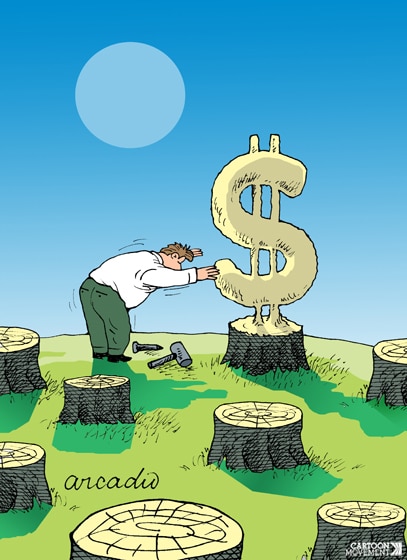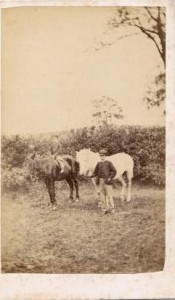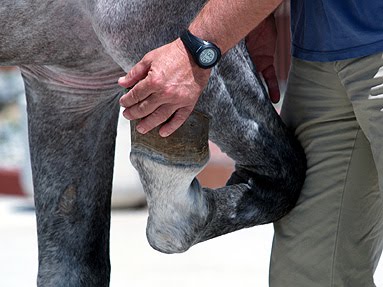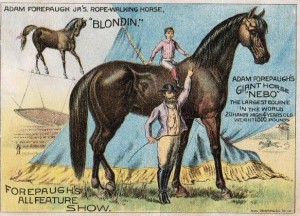 When I was a senior in veterinary school, I spent three months working in Central Kentucky, in what-was-at-the-time the largest Thoroughbred veterinary practice in the world. It was just a fantastic experience. I learned tons about horses and horse medicine. But I was I was also completely captivated by the stately barns, lush pastures, and especially by the history and tradition of the place. If you haven’t seen what they’ve done for horses in central Kentucky, you really should go see for yourself.
When I was a senior in veterinary school, I spent three months working in Central Kentucky, in what-was-at-the-time the largest Thoroughbred veterinary practice in the world. It was just a fantastic experience. I learned tons about horses and horse medicine. But I was I was also completely captivated by the stately barns, lush pastures, and especially by the history and tradition of the place. If you haven’t seen what they’ve done for horses in central Kentucky, you really should go see for yourself.
Still, the point of my being there was the horse work, and there was a whole lot of that. Not all of my lessons were about medicine, however. It was while palpating a broodmare that I got a lesson on the value of horses that I’ve never forgotten.
One brilliant, sunny autumn afternoon, my mentor, a prominent local veterinarian, had sent me off to a farm to check out some mares late in the season to see if they were cycling, and to see if their reproductive tracts were in good shape. I was diligently palpating one mare when he drove up, saw what I was doing, and asked, “How does she feel?”
This was my chance to shine, to show off the knowledge and newly found skills that I had acquired over three and a half years of veterinary school. I proudly responded by telling him about the state of the mare’s ovaries, her uterine tone, and whether or not her cervix was open (this was all pre-ultrasound, by the way). In short, I was more than proud to recite all of the information that I was taught to accumulate about a mare’s reproductive status. But, to my dismay, that was not what he apparently wanted to know.
“Does she feel any different?” he asked.
 I was a bit bewildered by the question. So, not really understanding what he was asking, and not sure that he heard me, I repeated all of the information that I had just accumulated. I proudly recounted the size of the ovarian follicle, the state of the mare’s cervix, etc., content at the fact that I at last had the ability to provide some useful information about a horse’s health. And to a true expert, at that.
I was a bit bewildered by the question. So, not really understanding what he was asking, and not sure that he heard me, I repeated all of the information that I had just accumulated. I proudly recounted the size of the ovarian follicle, the state of the mare’s cervix, etc., content at the fact that I at last had the ability to provide some useful information about a horse’s health. And to a true expert, at that.
But, apparently, that’s not what he wanted to know. “I heard you,” he said. “I want to know if she feels any different.”
I was stumped. This was the first time that had ever been near the mare. What was supposed to be different about her? So, exasperated, I exclaimed, “Different than what?”
My mentor said, “This mare’s worth a million dollars.” (Remember, this was 1982. A million dollars for a horse was a WHOLE lot of money.)
And, confused, I said, “So…???”
And he said, “Feels just like all of the other ones, doesn’t she?”
As horses get more expensive, people seem to think that the more expensive the horse, the more attention that it needs. Lots of people say that, too. So, expensive horses tend to get buckets of supplements, attention from a phalanx of “experts,” imported blankets, prophylactic joint injections for “maintenance” of joint function, semi-continuous inspections of the teeth, overtrained, etc., whereas their less pricey brethren have to muddle through life with hay, water, the occasional brushing, and maybe a periodic visit by the veterinarian. And, to be honest, from my perspective (of dealing with horse health problems for 30+ years), all of the extra frills seems to do almost exactly nothing for the horse’s health and longevity.
My mentor’s lesson has become clearer and clearer as the years go by. I’ve now had the opportunity to work on horses that were worth far more than that expensive mare that I palpated when I was a wide-eyed senior veterinary student. I have also worked on ones that, well, you could hardly give away. The thing is, the horses don’t know what they’re worth, and their worth to many owners has nothing to do with their purchase price. And they certainly don’t need more or less of anything just because someone has placed an arbitrary dollar value on them. The more expensive ones don’t have any more inherent health needs than do the cheaper ones. Good feed, clean water, regular exercise, and the attention to the occasional medical problem are the things that all horses really need to be the best that they can be.
Honestly, there’s a word for the best that a horse can be. That word is, “Normal.” There’s no “supernormal,” or “better than normal” that’s available from any sort of pill, supplement, or treatment.
In a way, it’s like cars. You can pay lots of money for a car. And you can wax it, and you can buy fuzzy dice to hang from the rear view mirror, and car seat covers, and steering wheel covers, and custom wheels, too. But none of that matters if you don’t put gas in it, change the oil, and maybe rotate the tires once in a while. In addition, if you drive recklessly, the car will eventually get beat up, no matter how much wax you put on the hood. Horses are like that, too. But, as with expensive cars, owners of expensive horses often seem to think that they’re not doing a good job unless they’re supplementing, or adjusting, or injecting, or magnetizing… or, well, doing the medical equivalent of polishing the car hood. But because owners think that waxing is so important, there are all sorts of expensive car waxes you can buy. I’m sure you can see where I’m going with this.
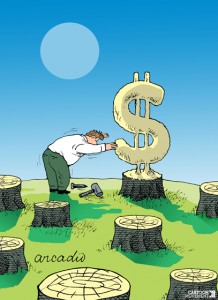 But all that said, I think that the whole thing of value, in terms of dollars, is overrated anyway. I mean, is a multi-million dollar Warmblood jumping horse really worth so much more than a 23 year old Quarterhorse with a bit of arthritis that will carry around a 5 year old with no complaints? Value is always relative, isn’t it? When it comes to horses, value isn’t an inherent quality in horses – it’s all in the eye of the beholder. But under any circumstances, and especially in terms of health, expensive horses don’t need anything more than those that are less well-heeled; heck, I generally think that the pricey ones need less stuff and more things that don’t involve purchasing anything: more time off, more attention, and more of just being a horse.
But all that said, I think that the whole thing of value, in terms of dollars, is overrated anyway. I mean, is a multi-million dollar Warmblood jumping horse really worth so much more than a 23 year old Quarterhorse with a bit of arthritis that will carry around a 5 year old with no complaints? Value is always relative, isn’t it? When it comes to horses, value isn’t an inherent quality in horses – it’s all in the eye of the beholder. But under any circumstances, and especially in terms of health, expensive horses don’t need anything more than those that are less well-heeled; heck, I generally think that the pricey ones need less stuff and more things that don’t involve purchasing anything: more time off, more attention, and more of just being a horse.
Last thing. I’m not saying that people who own expensive horses don’t care about them. They surely do. But caring and care is not measured by how many products and services you buy. And the value of a horse can’t be measured by the amount of money paid. It’s the time you spend with a horse that forges priceless ties.
No matter what a horse costs, it’s set up to do pretty well over the long term with minimal fuss. As long as you’re doing the things that are really important for your horse – feeding, watering, sensible riding, and paying attention to his needs (and a brush shouldn’t be particular expensive, either) – you’re providing million dollar care. And that’s what all horses deserve.

